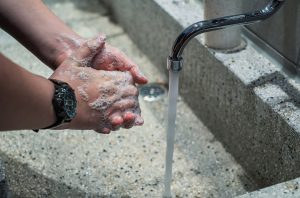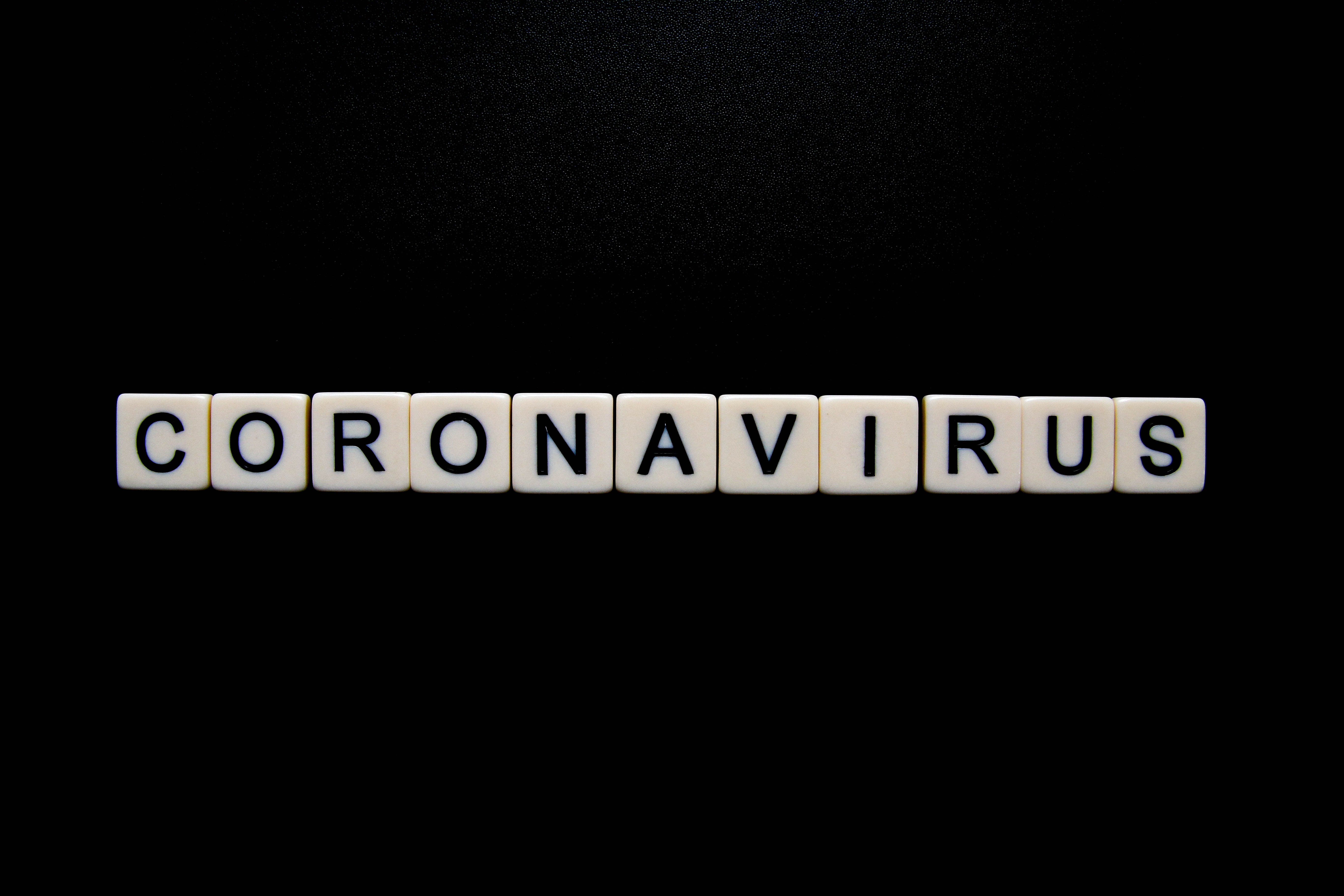As with all viruses, it’s best to be careful when you’re in a situation where exposure is possible. This is why we must all be mindful of the new coronavirus disease strain, now named COVID-19, that originated last year in Wuhan, China. In just a few months, it had already spread around the world.
Previous variations of the coronavirus were limited to animals, and it’s rare for this class of viruses to evolve to infect humans. Only a few strains have been known to pass between people, such as SARS-CoV and MERS-CoV, but they cause respiratory problems that are exponentially more severe than the flu.
SONO medical grade disinfecting wipes are EPA registered to eliminate human coronavirus (ATCC VR-740) and SARS associated coronavirus (SARS-CoV Urbani strain 200300592), so they’re a strong defense against the toughest viruses you might encounter.
The coronavirus mutation we’re seeing now is spreading among humans rapidly. It is very dangerous for anyone with a compromised immune system. At this point, most new infections are being seeing outside of China, with some countries seeing rapid increases in community spread. Among the most concerning developments are reports of “supercarriers” who are unknowingly spreading the virus because they don’t have symptoms.
Signs and Symptoms
Health officials report that symptoms can appear up to 14 days after being exposed to the virus. Most confirmed cases have displayed the following:
- Fever
- Cough
- Headache
- Muscle pain
- Difficulty breathing
These are the commonly reported early signs of coronavirus, but it later attacks the respiratory system, causing breathing to become very difficult. Severe cases lead to pneumonia, with X-rays of infected patients showing a build-up of fluid in their lungs. The only way to diagnose infected people is through a series of tests.
If you believe you are sick, whether it be the flu or the coronavirus, the first thing you should do is cover your mouth when you cough. The best way is to cough into your elbow. Since it can cover most of your mouth, it reduces the chance of spreading germs through the air. Then immediately call a doctor for advice—don’t travel anywhere unless instructed to do so.
How It Started
A seafood and wildlife market in Wuhan, China appears to be the source of the virus. It is an open market, where humans work closely with a wide variety of animals, including chickens, pigs, snakes, dogs, and bats. Bats were the cause of the last SARS epidemic, but it has not been confirmed yet if they are the only source of the new coronavirus outbreak. Early genetic testing has shown the virus came from bats, but more research is needed to determine if the virus jumped to one or more other animals before it was transferred to humans.
China has since closed the Wuhan market and others like it to reduce opportunities for the virus to spread. It has also instructed workers to use machines that are similar to snow-blowers to spray disinfectant throughout the city. Other countries will most likely use a similar tactic in the weeks and months to come.
Quarantine Enacted in China
China has quarantined the cities of Wuhan, Huanggang, Ezhou, and Chiba. All public transportation into these locations, including buses, trains and flights have been stopped. The four cities have a total population that exceeds 20 million people. Based on 2019 US census data, that’s roughly equal to the population of New York or Florida.
The timing of the quarantine and virus outbreak was problematic because January 25 was the start of the Chinese New Year. It’s typically the most traveled day of the year, and is often referred to as the largest annual human migration in the world. After declaring a citywide emergency, Hong Kong canceled all of its celebrations. Beijing and Shanghai canceled all New Year events as well.
The counties surrounding China, specifically Vietnam and South Korea, have enacted quarantines to limit the movement of their citizens. Both countries have since experienced large numbers of infected citizens are and working to reduce community spread.
The USA arranged for a series of flights to remove citizens and diplomats from Wuhan and other areas of China in February. US hospitals have also already begun setting up quarantine areas to use if the virus overwhelms them. The US military has also committed space on some bases for hospitals to use as housing for infected individuals. As of March 16, multiple cities and states have forced schools to close and banned mass gatherings.
World Health Organization (WHO) Response
At the end of January, the WHO declared this a global emergency. Its officials started working with countries around the world to help them limit the spread of the virus. The declaration of a public health emergency of international concern (PHEIC), is meant to help support less developed countries by preventing the virus from spreading to places that aren’t equipped to detect the disease or handle mass infections.
The WHO has advised countries to not restrict trade with China or close their boarders to travelers. However, some countries—including the USA—are starting to restrict air travel and close their borders. Dr. Michael Ryan, the WHO’s emergency chief, told reporters in January that if most countries implement trade and travel restrictions, it will be an economic, political, and social “recipe for disaster.”
In the past decade, the WHO has declared global emergencies 5 times: Swine Flu (2009), Polio (2014), Ebola in West Africa (2014), Zika virus (2016), and Ebola again, but in the Democratic Republic of the Congo (2019), but none have caused as much alarm as the current crisis.
On March 11, the WHO declared COVID-19 a global pandemic. This means it expects everyone around the world to be exposed to the virus. It is now recommending citizens to stop all non-essential travel and stay home to avoid crowds.
The primary concern among virology experts is that hospitals will be overrun with sick patients and not have space or equipment to help them. One phrase being used by these experts is to “flatten the curve.” This means if people maintain social distance, we can slow the spread of the virus enough that hospitals can still effectively manage the crisis. We don’t want everyone to be sick at the same time.
What You Can Do to Stay Safe
Traveling outside the USA is not recommended by the Centers For Disease Control (CDC). In fact, it’s best to stay home and away from crowds as much as possible. The virus doesn’t present symptoms when people first contract it, but they are able to spread it during this time period. This means asymptomatic people are most dangerous at this time if they continue to be around other people.
Wash your hands regularly

The CDC says washing your hands is your best defense against infections and viruses, including coronavirus. Germs can live on most surfaces for hours and are commonly passed among people through physical contact.
The CDC has a detailed process it recommends for hand washing. These are the steps :
- Wet your hands with clean, running water (warm or cold), turn off the tap, and apply soap.
- Lather your hands by rubbing them together with the soap. Lather the backs of your hands, between your fingers, and under your nails.
- Scrub your hands for at least 20 seconds. Need a timer? Hum the “Happy Birthday” song from beginning to end twice.
- Rinse your hands well under clean, running water.
- Dry your hands using a clean towel or air dry them.
If you’re not close to a sink, hand sanitizer is a good alternative—but be mindful that it’s not as effective as soap and water. The CDC advises you should use an alcohol-based hand sanitizer that contains at least 60% alcohol. Be sure to check the product label for the alcohol content.
Additionally, a general precaution for avoiding all viruses is to not touch your mouth, nose, eyes or face with unwashed hands. Your hands are the most likely way for a virus to enter your body because they touch contaminated surfaces frequently.
Another suggestion from the WHO is to maintain social distance from other people. You can’t predict when someone might cough or sneeze, so it’s best to not get within 6-feet of other people. Obviously, this is very difficult to do in crowds, so avoid them when you can as well.
If you are in a situation where you need to care for someone who is ill, it’s best that you wear a mask to prevent transmission. And if you become ill, wearing a mask will help protect the people around you. Currently, the CDC is not recommending healthy people should buy and wear masks because it is concerned supplies will run out for medical providers.
As more cases are confirmed around the world, many people will be asked to quarantine themselves. You’re much less likely to be exposed to the infection if you don’t have contact with anyone, but this will be very difficult for most people to achieve. Few have enough non-perishable food stored in their homes to live this way for long. So if you haven’t already, now is the be the best time to start collecting basic food supplies (not toilet paper – your shower and water should work fine throughout the crisis). Experts recommend you visit grocery stores during non-peak hours whenever possible.
Start using medical-grade disinfectants
Kurt the CyberGuy Knutsson appeared on Fox News in January to discuss what gear can be used to protect yourself from the coronavirus. One of his recommendations was to use SONO medical-grade disinfecting wipes for everything you touch, especially when you’re traveling. You can see the full interview here:
And here’s how you can disinfect against the worse viruses like COVID-19 on your phones, light switches, door handles and any other hard, non-porous surface using SONO Disinfecting Wipes:
- Wipe the surface until it is visibly wet with the wipe solution.
- Maintain a wet surface for at least 10 minutes, using multiple wipes if needed.
- Allow to air dry.
The most important step is to give the SONO formula time to work on the surface before touching it.
Aside from washing your hands regularly and disinfecting your home, office and vehicle with SONO wipes, be sure to eat healthy and get plenty of sleep. Your body can defend against viruses best when you’re well-rested.
Disclaimer: If you think you have been exposed to COVID-19 and develop a fever and other symptoms, such as a cough or difficulty breathing, call your healthcare provider for medical advice before doing anything else.
LegalReader thanks Sono Healthcare for the permission to republish this article. The original is found here.


Join the conversation!